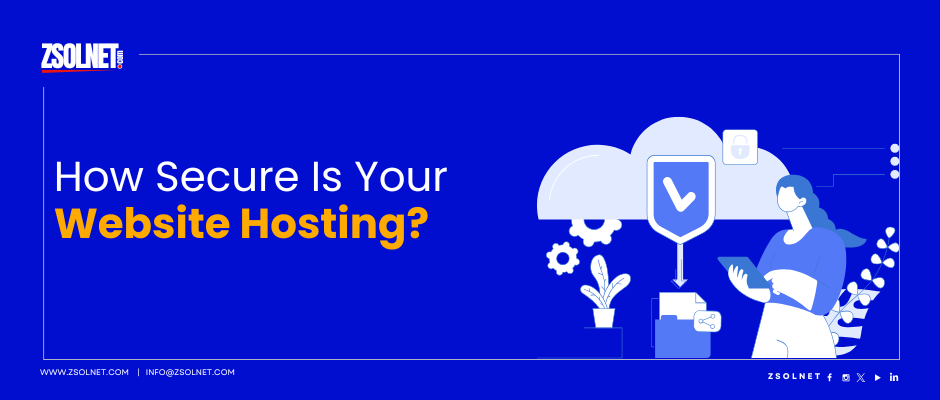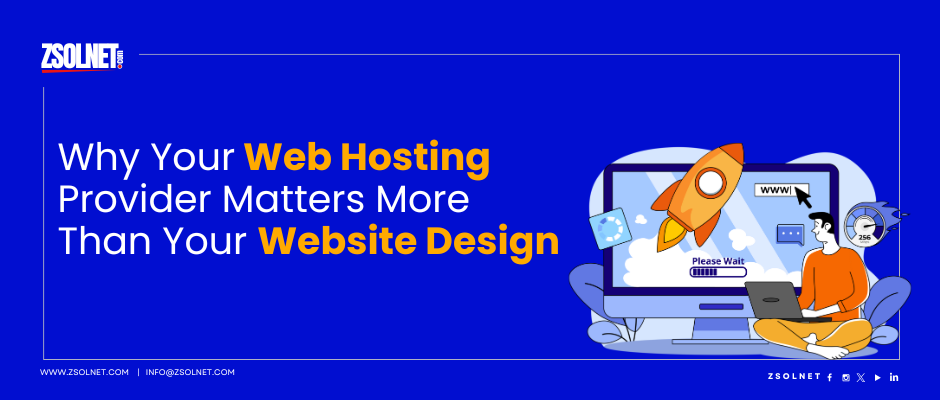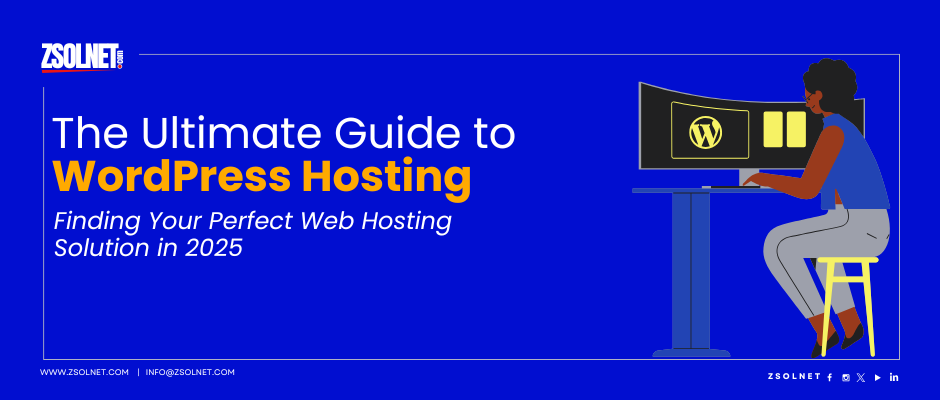Executive Summary
Website hosting security is no longer optional in today’s digital landscape. This guide examines the essential security features every hosting provider should offer, how to evaluate your current hosting security, and practical steps to enhance your website’s protection. From SSL certificates to backup protocols, discover what truly matters when selecting a secure hosting solution for your business.
Introduction
Your website is often the first point of contact between your business and potential customers. While design and functionality receive significant attention, website hosting security remains a critical yet frequently overlooked aspect of your online presence. According to recent studies, cyberattacks against websites have increased by 62% in the past year alone, with small to medium-sized businesses being particularly vulnerable targets.
Secure website hosting forms the foundation of your digital security strategy. Just as you wouldn’t store valuable inventory in a warehouse without proper locks and alarm systems, your valuable data and customer information require robust protection at the hosting level.
This comprehensive guide explores the essential security features that reputable hosting providers should offer, helping you evaluate whether your current website hosting security measures are adequate for your business needs. We’ll examine how secure hosting solutions differ from standard offerings and provide actionable steps to enhance your website’s protection against evolving cyber threats.
Key Features of Secure Website Hosting
When evaluating website hosting security, certain features stand out as essential components of any secure hosting solution. These elements work together to create multiple layers of protection for your website and data.
Regular Security Updates and Patch Management
One of the most fundamental aspects of hosting security is how promptly and efficiently security updates are implemented. Outdated software contains vulnerabilities that hackers can exploit to gain unauthorized access to your website.
What to look for:
- Automatic security patching for server software
- Regular updates to server operating systems
- Proactive vulnerability scanning and remediation
- Clear communication about critical security updates
Leading hosting providers maintain dedicated security teams that monitor for new vulnerabilities and deploy patches rapidly, often within hours of their release. This proactive approach significantly reduces your exposure to known security threats.
Robust Firewall Protection
A properly configured web application firewall (WAF) serves as your first line of defense against malicious traffic and common attack vectors.
What to look for:
- Advanced WAF with customizable rule sets
- DDoS attack mitigation capabilities
- IP blocking and country-based access restrictions
- Traffic anomaly detection and alerting
Modern secure hosting solutions typically offer multiple firewall layers, combining network-level protection with application-specific security rules tailored to your website’s specific needs.
Data Encryption Standards
Data encryption transforms your sensitive information into coded text that can only be decoded with the proper encryption keys, protecting it both during transmission and while stored on servers.
What to look for:
- End-to-end encryption for data transfers
- At-rest encryption for stored data
- Support for the latest encryption protocols
- Secure key management processes
The most secure hosting providers implement military-grade encryption standards and regularly update their encryption methods to stay ahead of emerging threats.
Importance of SSL Certificates
SSL (Secure Socket Layer) certificates have evolved from a luxury to a necessity for any professional website. These digital certificates authenticate your website’s identity and establish an encrypted connection between your server and visitors’ browsers.
Types of SSL Certificates
Different websites have varying security needs, which is reflected in the range of SSL certificate options available.
Here’s your content in a clean table format:
| Certificate Type | Validation Level | Best For | Typical Cost |
|---|---|---|---|
| Domain Validated (DV) | Basic – verifies domain ownership only | Blogs, personal sites | $17 – 79/year |
| Organization Validated (OV) | Moderate – verifies organization details | Small-medium businesses | $170–1150/year |
| Extended Validation (EV) | Highest – comprehensive verification | E-commerce, financial services | $290–1500+/year |
| Wildcard SSL | Varies – covers main domain and all subdomains | Sites with multiple subdomains | $100–500+/year |
Beyond the Padlock: SSL Benefits
While most website owners understand that SSL certificates provide basic encryption, their benefits extend far beyond simply displaying a padlock icon in visitors’ browsers:
- SEO Advantage: Google explicitly uses HTTPS as a ranking signal, giving secure websites a competitive edge in search results.
- Customer Trust: Studies show that 84% of users would abandon a purchase if they noticed they were dealing with an unsecured website.
- Compliance Requirements: Many industry regulations (such as PCI DSS for payment processing) mandate proper SSL implementation.
- Protection Against Phishing: Valid SSL certificates help users verify they’re on your legitimate website rather than a fraudulent copy.
What to Look For in Hosting Provider SSL Support
Not all hosting providers offer equal SSL support. When evaluating secure hosting solutions, consider these factors:
- Free SSL certificate inclusion with hosting packages
- Automated SSL renewal processes
- Support for installing custom SSL certificates
- Proper SSL configuration and implementation
- HSTS (HTTP Strict Transport Security) support
Evaluating Your Hosting Provider’s Security Measures
Beyond the technical features, several operational aspects significantly impact your website hosting security. When assessing potential hosting providers or reviewing your current service, consider these critical factors:
Security Track Record and Transparency
A hosting provider’s history of handling security incidents reveals much about their security priorities and capabilities.
Questions to ask:
- How promptly do they disclose security incidents?
- Do they publish post-incident analysis reports?
- What is their average response time to security vulnerabilities?
- Can they provide references from security-conscious clients?
Reputable secure hosting providers maintain transparent security practices and are willing to share information about their security infrastructure (without revealing details that could compromise their systems).
Data Backup and Disaster Recovery
Even with robust security measures, data loss can occur due to hardware failures, natural disasters, or sophisticated attacks. Your hosting provider’s backup and recovery capabilities form a crucial component of your overall security strategy.
What to look for:
- Automated daily backups with retention policies
- Geographic redundancy (backups stored in multiple physical locations)
- Point-in-time recovery options
- Regular backup testing procedures
- Ease of backup restoration process
The most secure hosting solutions offer comprehensive backup systems that operate independently from primary production systems, ensuring data can be recovered even in worst-case scenarios.
Physical Security Measures
Digital security begins with physical security. Your hosting provider’s data centers should implement strict controls to prevent unauthorized physical access to server hardware.
What to look for:
- 24/7 monitoring and security personnel
- Biometric access controls
- Video surveillance systems
- Environmental controls (fire suppression, climate control)
- Compliance with data center security standards (e.g., SSAE 16, ISO 27001)
Premium hosting providers typically own or partner with Tier III or Tier IV data centers that implement multiple physical security layers and redundant systems.
Security Monitoring and Threat Detection
Proactive monitoring forms the cornerstone of effective website hosting security. Look for hosting providers that offer:
Real-time Security Monitoring
Advanced secure hosting solutions include continuous monitoring systems that scan for:
- Unusual file changes or modifications
- Suspicious login attempts
- Traffic anomalies indicating potential attacks
- Known malware signatures
- Script injection attempts
The most effective systems combine automated monitoring with human security expertise for investigating and responding to potential threats.
Intrusion Detection and Prevention Systems (IDPS)
IDPS technology automatically identifies and blocks suspicious activities before they can impact your website.
What to look for:
- Network-based intrusion detection
- Host-based intrusion prevention
- Regular rule updates to detect emerging threats
- False positive management processes
- Detailed attack attempt reporting
Premium hosting providers layer multiple detection systems to provide comprehensive protection against both known and novel attack methods.
Compliance and Regulatory Considerations
Depending on your industry and the type of data you collect, your website may need to comply with specific regulations such as GDPR, HIPAA, or PCI DSS. Your hosting provider plays a crucial role in supporting your compliance efforts.
What to look for:
- Compliance certifications relevant to your industry
- Data residency options for region-specific requirements
- Compliance documentation and assistance
- Regular compliance audits and reports
- Privacy-focused data handling practices
The most security-conscious hosting providers maintain multiple compliance certifications and can help you understand how their services support your specific regulatory requirements.
Practical Security Assessment Checklist
Use this checklist to evaluate your current or potential hosting provider’s security capabilities:
- ☐ Offers automated malware scanning and removal
- ☐ Provides free SSL certificate installation and renewal
- ☐ Implements server-level firewall protection
- ☐ Maintains regular (at least daily) backup systems
- ☐ Offers DDoS protection services
- ☐ Provides security monitoring and alerting
- ☐ Implements account-level security features (2FA, strong password policies)
- ☐ Maintains current security patching on all server components
- ☐ Offers isolated/dedicated hosting environments for enhanced security
- ☐ Provides detailed security documentation and support
Conclusion
Website hosting security isn’t merely a technical consideration—it’s a fundamental business requirement in today’s threat landscape. As cyberattacks grow increasingly sophisticated, the security features your hosting provider offers can make the difference between business continuity and a devastating breach.
When selecting a secure hosting solution, look beyond basic features and marketing claims. Evaluate the provider’s security infrastructure, monitoring capabilities, backup systems, and compliance support. Remember that true website hosting security combines technological measures with operational excellence and human expertise.
By understanding the essential security features outlined in this guide, you can make informed decisions about your hosting provider and take proactive steps to enhance your website’s protection. Investing in secure hosting now can prevent significant financial and reputational damage in the future.
Remember that security is not a one-time setup but an ongoing process. Regularly review your hosting security measures, stay informed about emerging threats, and maintain open communication with your hosting provider about your security needs.
At ZSOLNET, we understand the critical importance of website hosting security and are committed to providing our clients with robust, multi-layered protection for their online presence. Contact our security specialists today to learn how we can help strengthen your website’s security posture.




